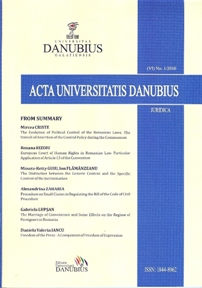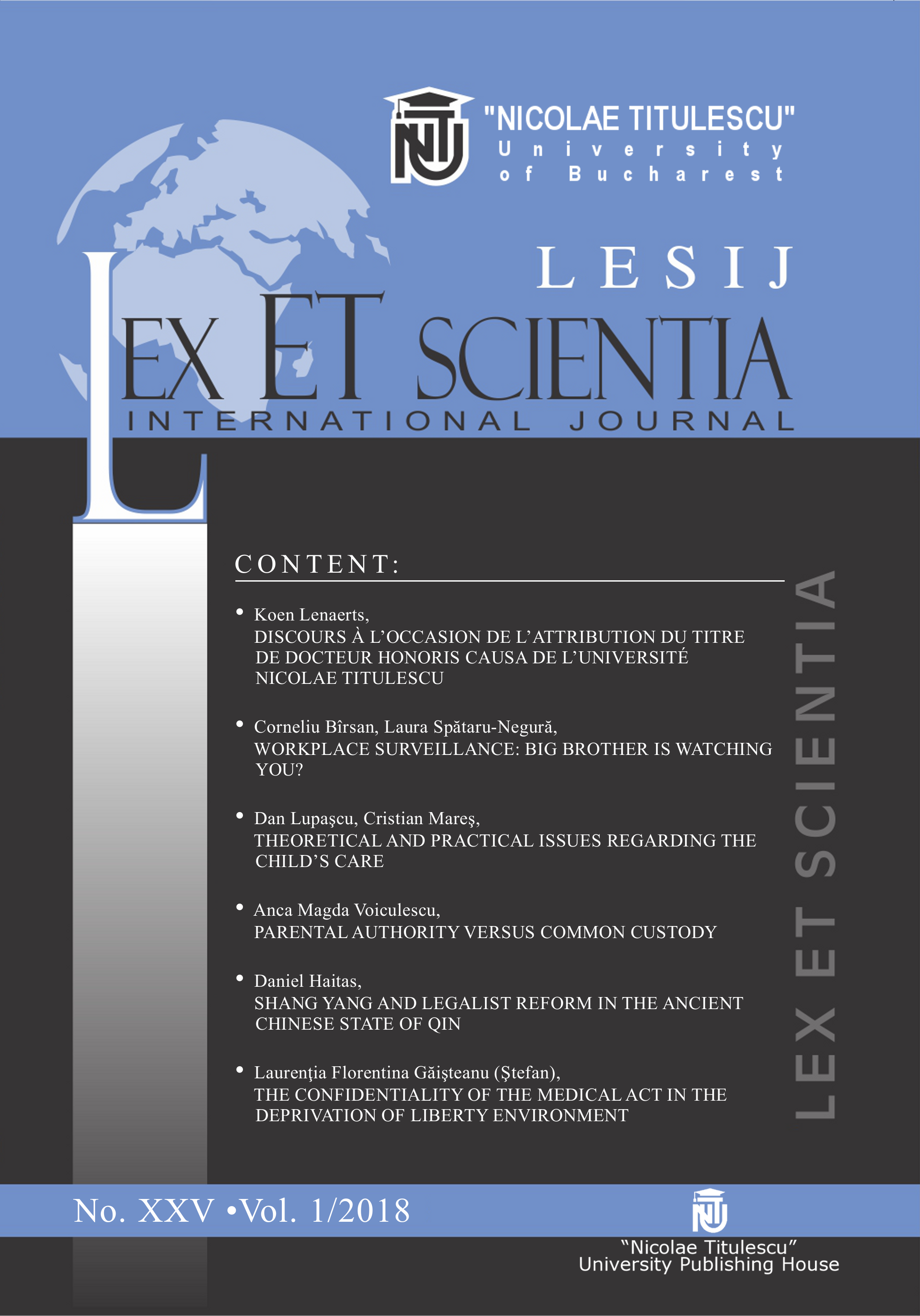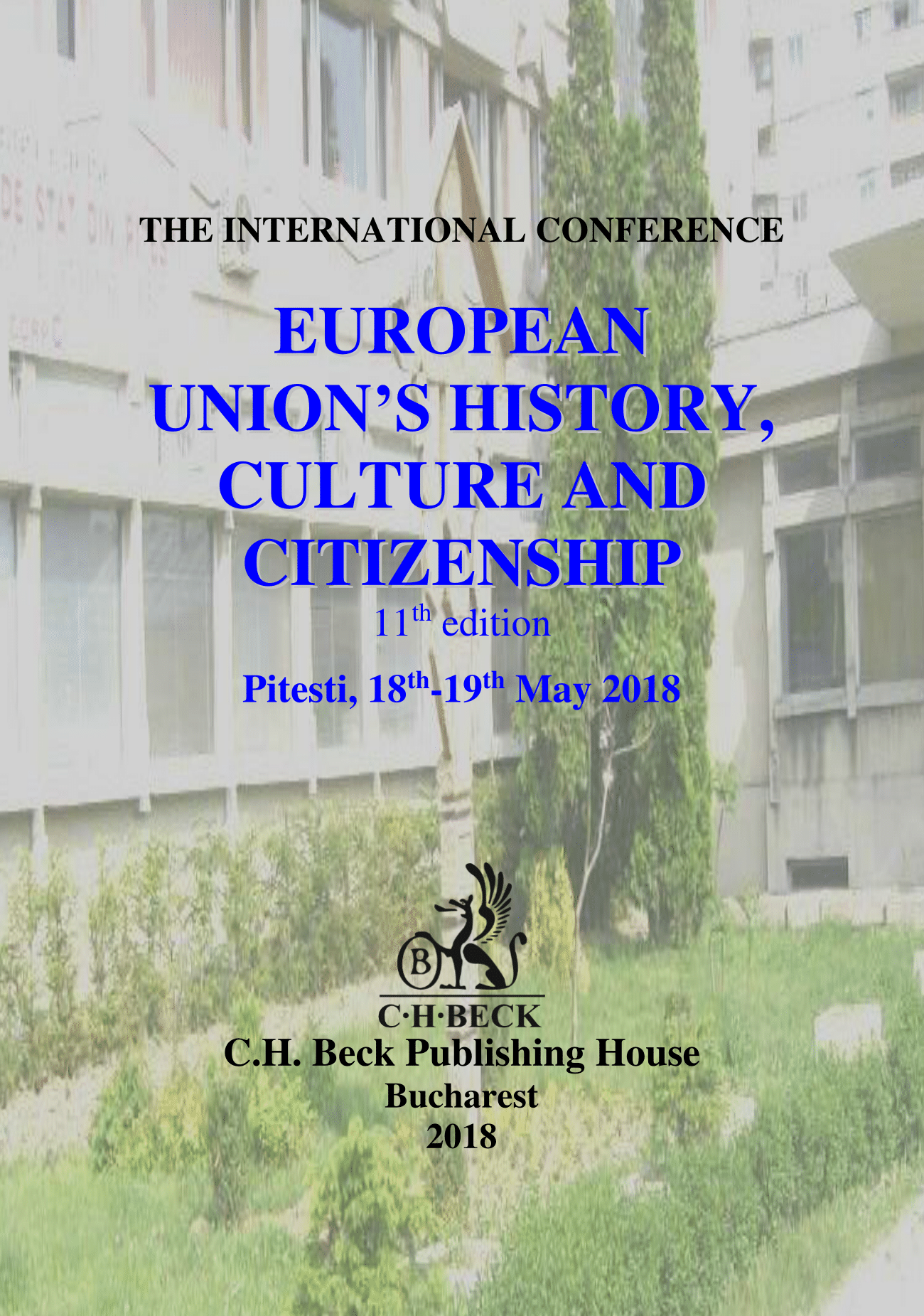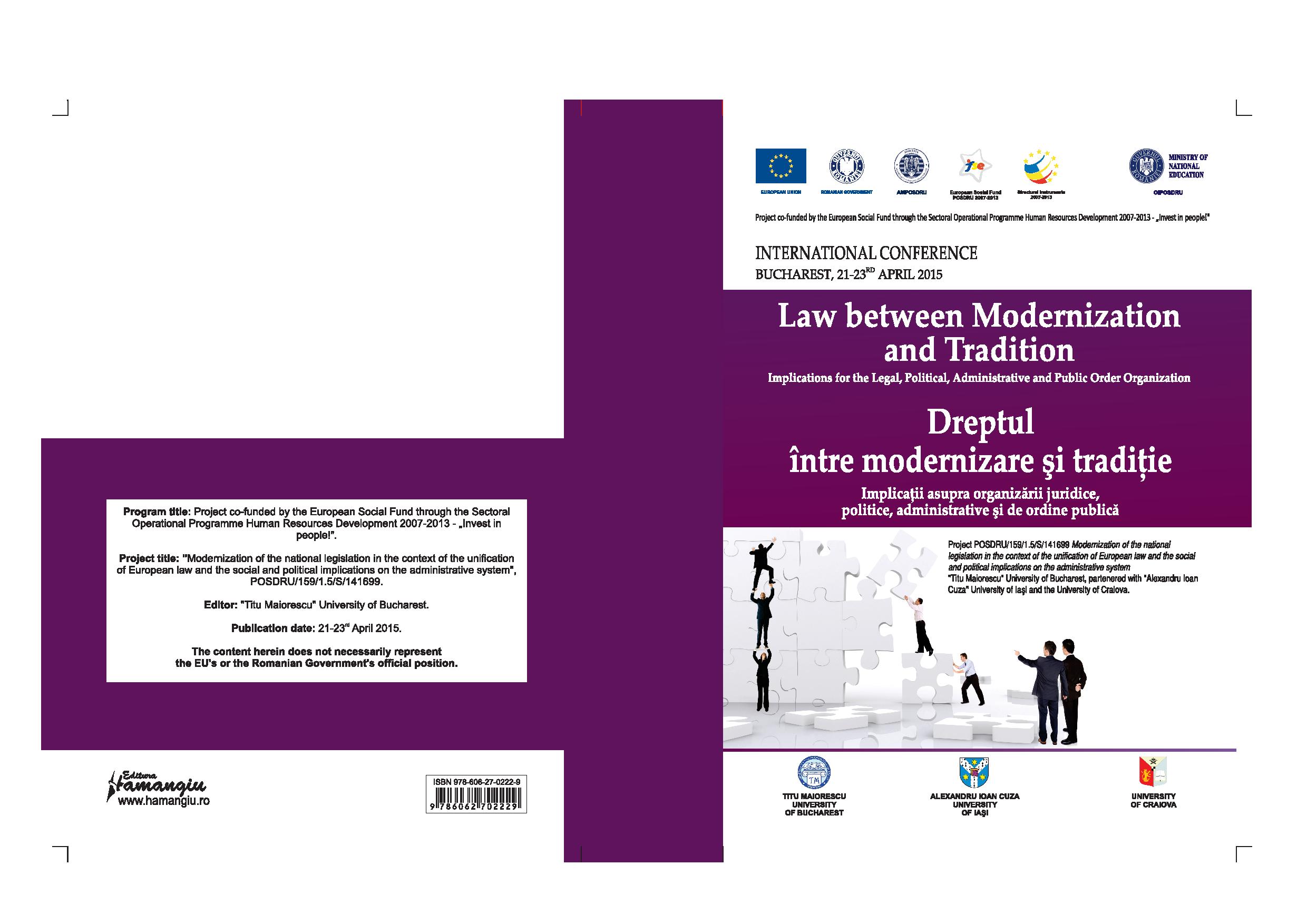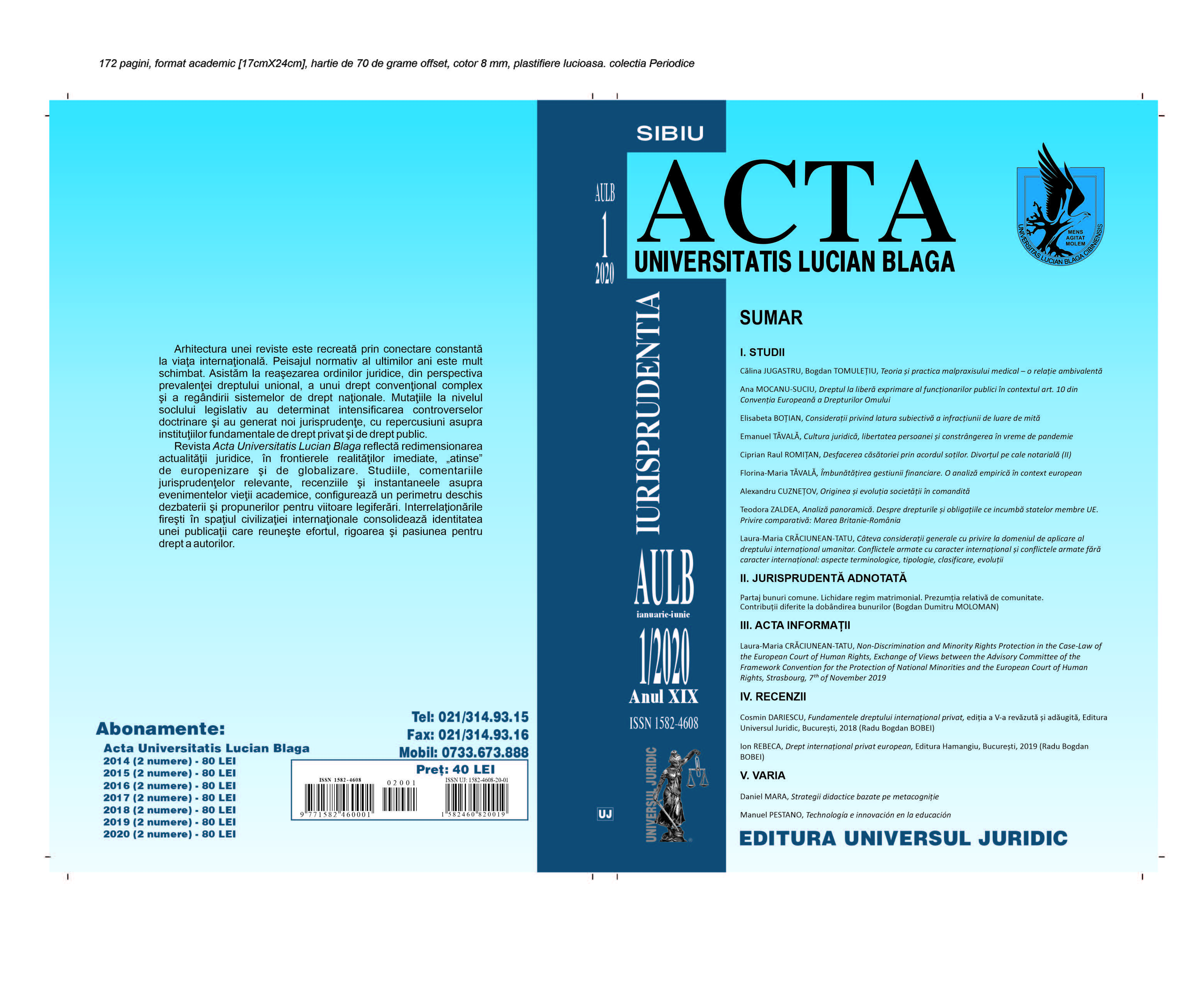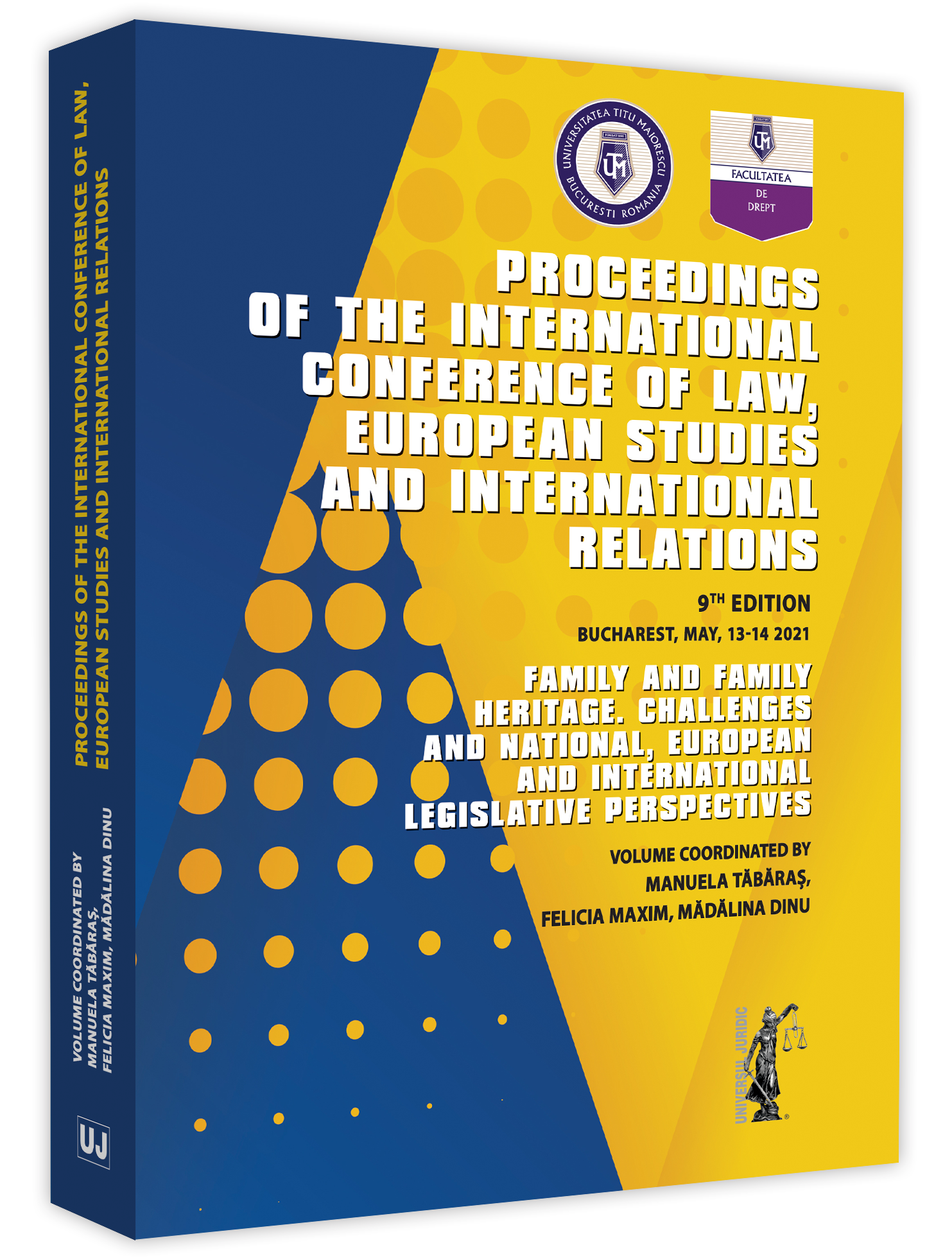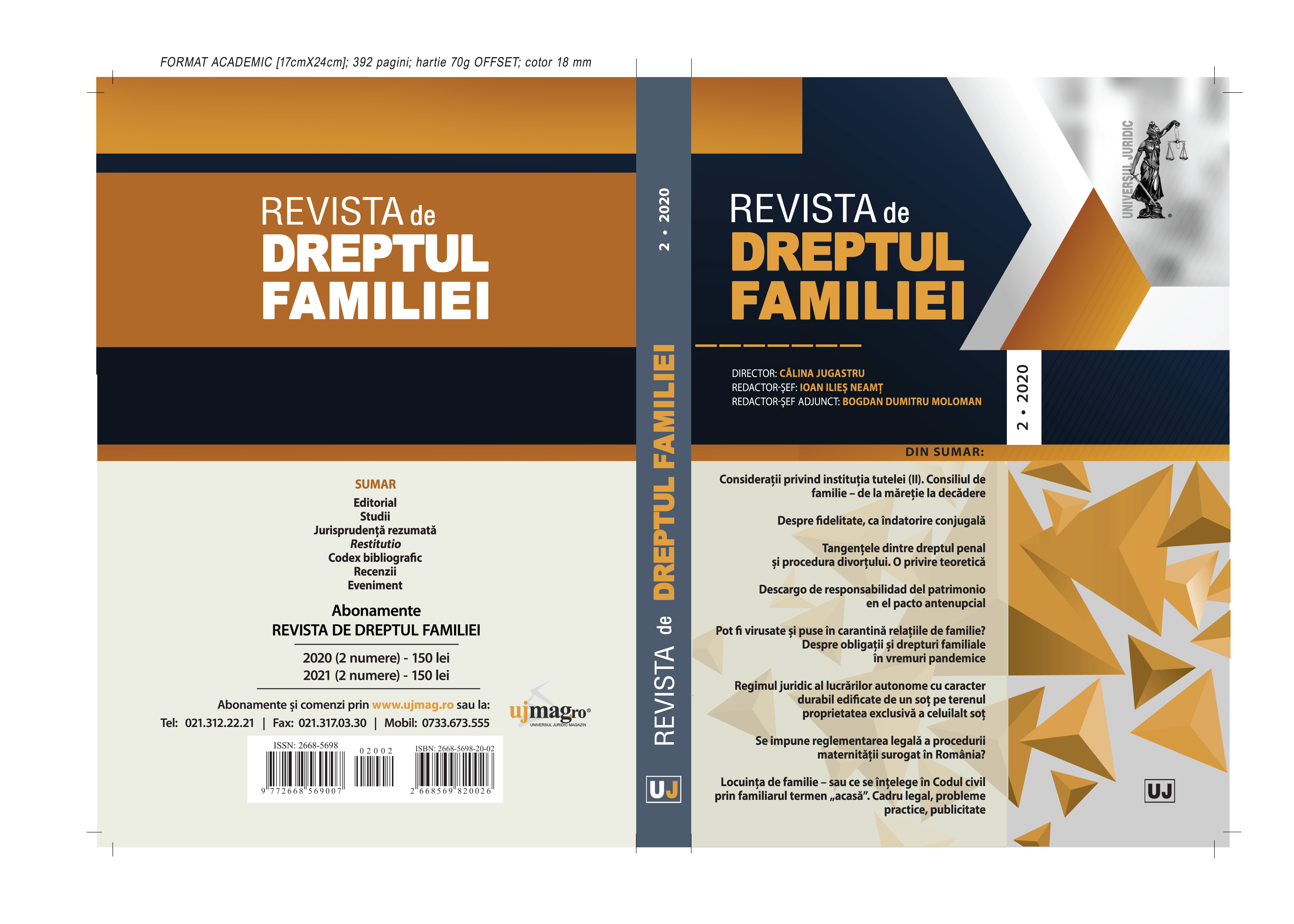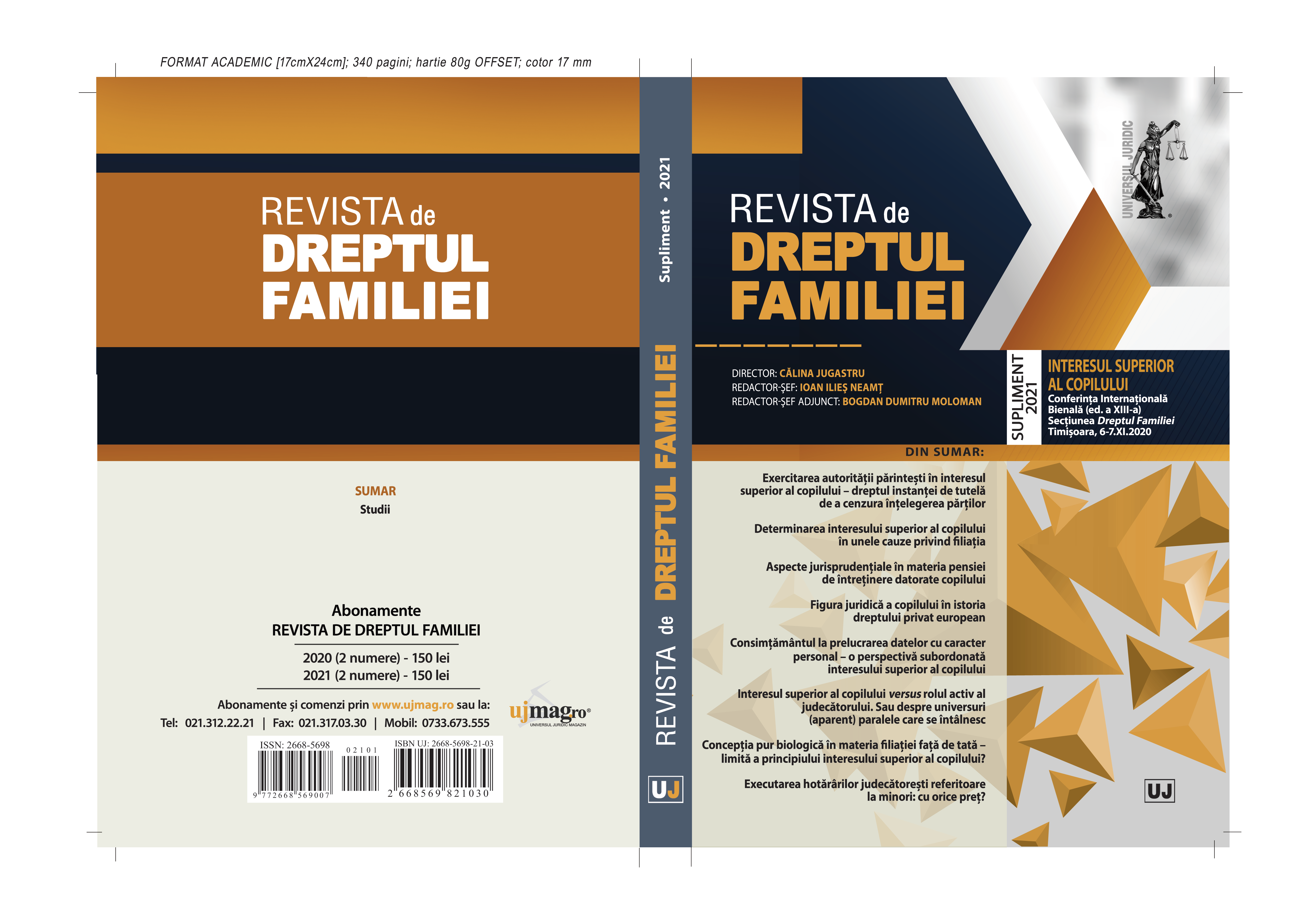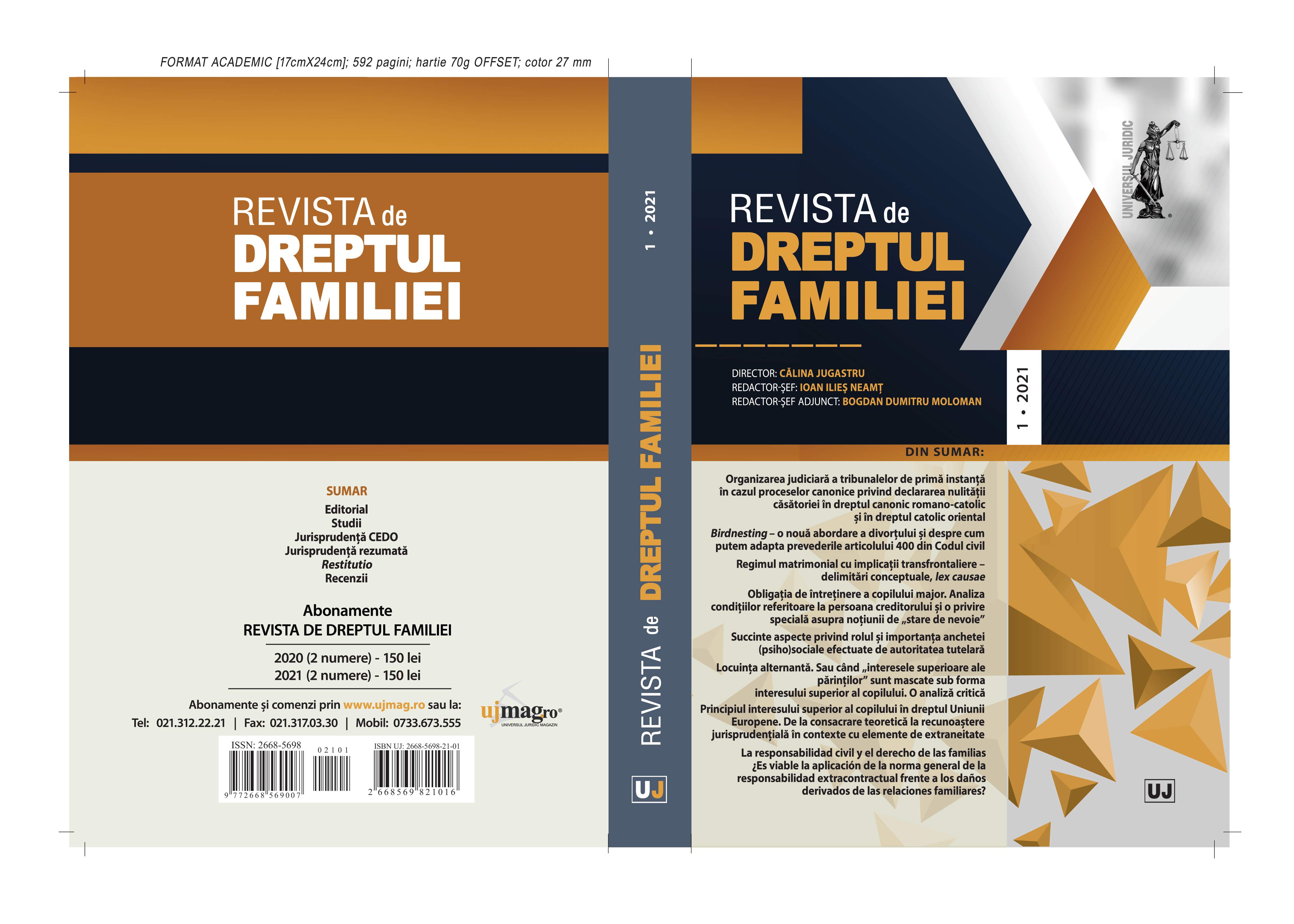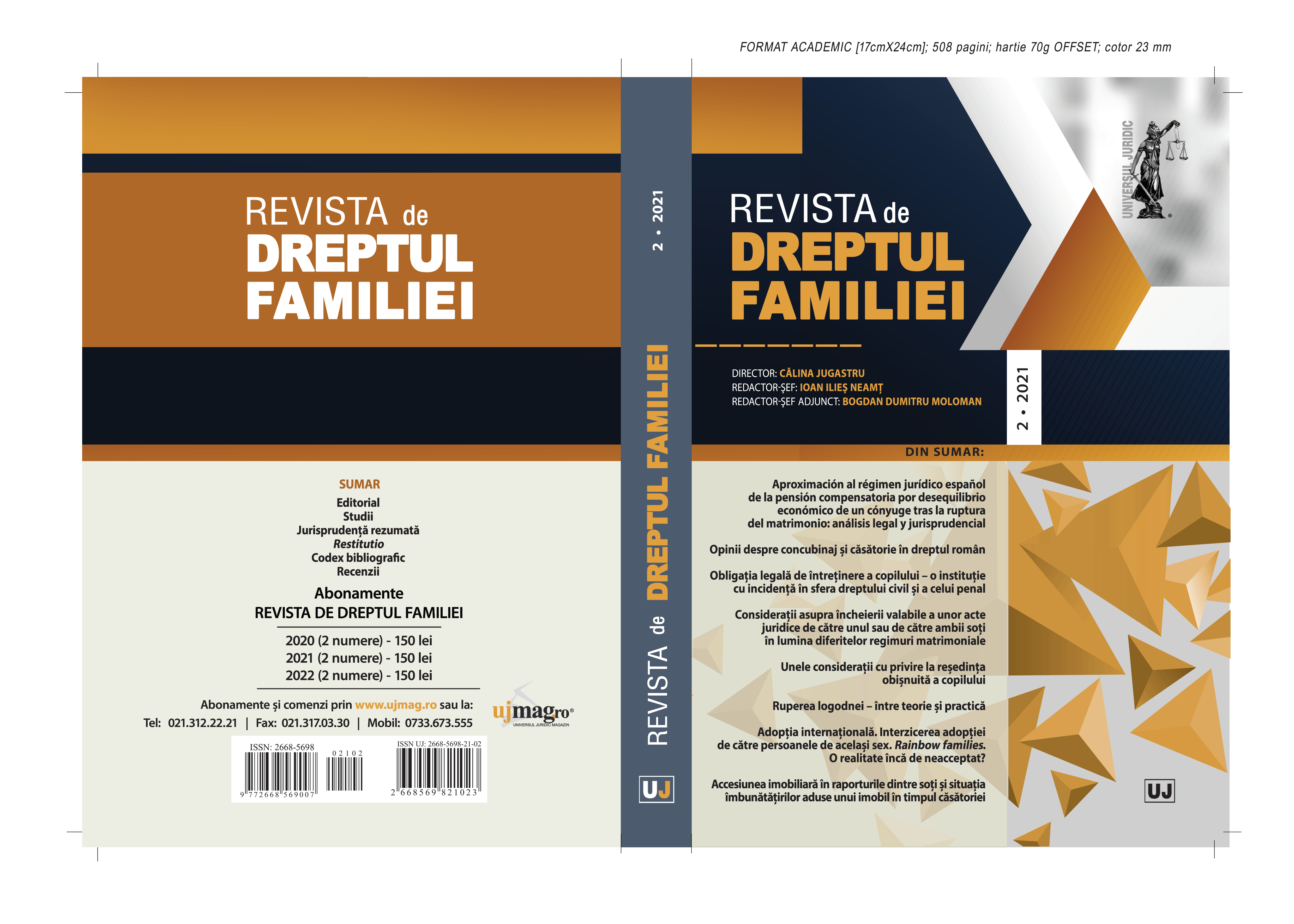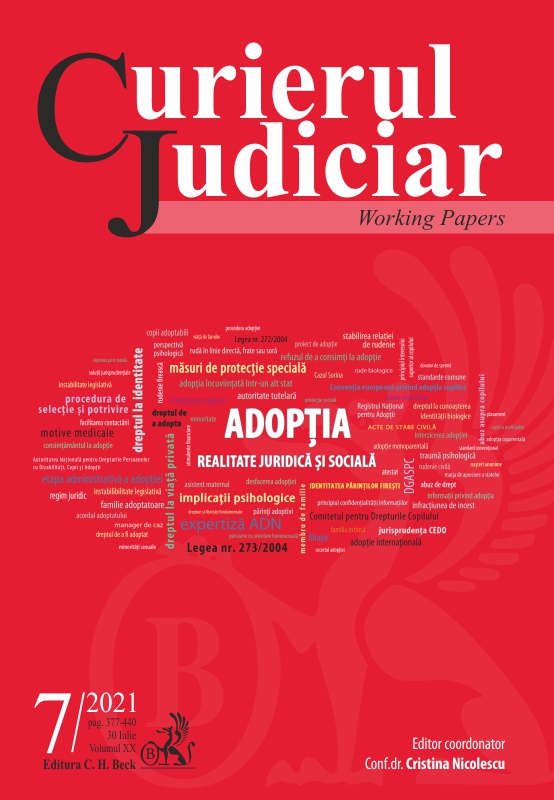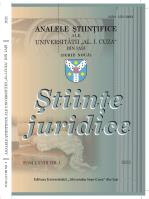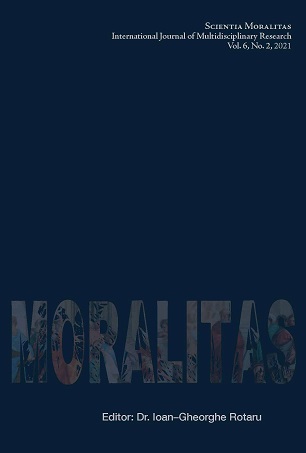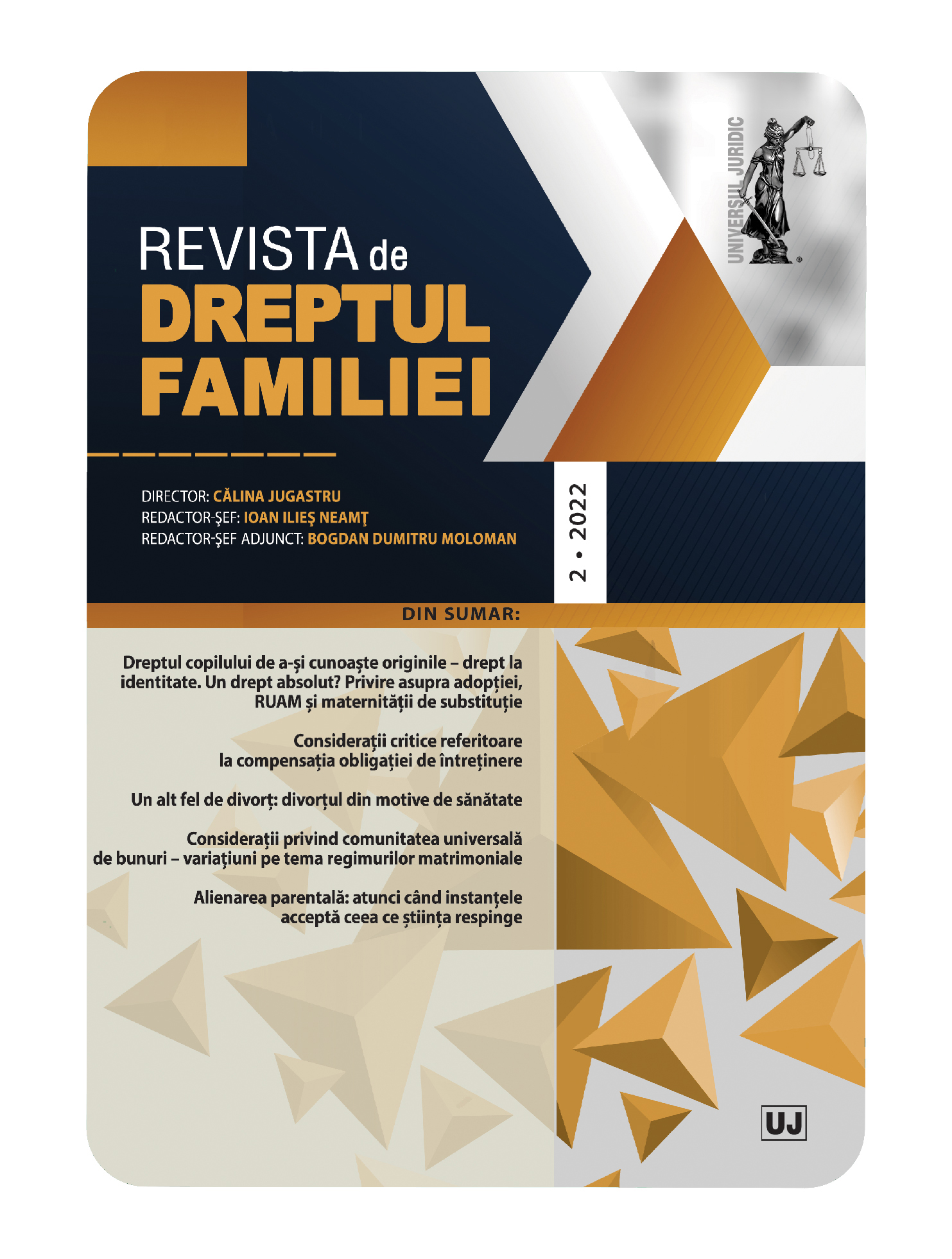
Considerations Regarding the Absence of Impediments to the Contracting of Marriage According to the Stipulations in the Family Code and Civil Code
Considerations Regarding the Absence of Impediments to the Contracting of Marriage According to the Stipulations in the Family Code and Civil Code
Keywords: the Family Code; the new Civil Code; impediments to the contracting of marriage; the existence of a previous valid marriage (the state of bigamy); 2. the prohibition of marriage between blood relatives; the prohibition of marriage between relatives
The impediments to the contracting of marriage are those circumstances expressly stipulated by the law whose existence incapacitates the contracting of marriage. The article present and analyzes the impediments to marriage according to articles 5-9 of the Family Code and to art.273-277 of the Civil Code. Thus, we will see that according to art.5-9 of the Family Code and to art. 273-276 of the Civil Code the impediments to marriage are: 1. the existence of a previous valid marriage (the state of bigamy); 2. the prohibition of marriage between blood relatives; 3. the prohibition of marriage between relatives by adoption; 4. the prohibition of marriage between the legal tutor and the minor child; 5. the prohibition of marriage of the mentally alienated people and of the mentally retarded people; 6. the prohibition of marriage between the people who suffer from temporary lack of judgment; 7. the prohibition of same-sex marriage. However, the provisions in the Civil Code only bring under regulation as an impediment the prohibition of marriage between the persons who suffer from temporary lack of judgment. Art. 277 paragraph 3 in the Civil Code stipulates the prohibition of the civil partnerships between people of different or same sex.
More...
